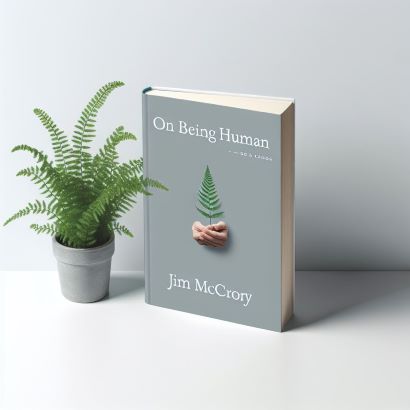Joy was a “desire that is itself more desirable than any satisfaction.”

“You have made us for yourself, O Lord, and our heart is restless until it rests in you.”
— Augustine, Confessions
There is an ache that follows us, quietly persistent. We feel it in the stillness after the music fades, in the let down that follows even our happiest moments, in the silence after a longed-for dream has been realised, and still, something is missing. Some try to fill it with materialism, the new car, the new house, sex, travel and other forms of temporary pleasures that create that dopamine lift that quickly fades.
Augustine named this ache centuries ago. It is the restlessness of the soul made for another world.
Augustine’s confession is not just personal it's universal. Every human life is lived in pursuit of something that seems always just out of reach. The ancient philosopher Blaise Pascal described it as a “God-shaped vacuum” in the heart of every man, something no created thing can fill. We attempt to plug it with distractions, with ambition, with relationships, with causes, but none last. They flicker, and the ache returns.
C.S. Lewis, perhaps our greatest modern apologist of longing, called this ache Joy, but not joy in the way we commonly speak of it. For Lewis, Joy was a “desire that is itself more desirable than any satisfaction.” It came unbidden, in glimpses—a shaft of sunlight in the woods, a half-remembered song, the smell of autumn leaves—and vanished before it could be captured. It was not the thing itself, but the signpost toward it. Lewis came to believe that Joy was evidence not of delusion, but of design. “If I find in myself desires which nothing in this world can satisfy,” he wrote, “the most probable explanation is that I was made for another world.”
Augustine, Pascal, and Lewis all agree on something essential: we are creatures with eternity planted in our hearts. We bear the imprint of a home we have never fully seen but somehow remember. We are like exiles, living with a homesickness that nothing here can cure. And this is not weakness—it is revelation.
The modern world tells us to silence this restlessness. It offers distractions, consumerism, achievement, digital escapism. But Christianity dares to say: no, listen to it. That ache is not the problem; it is the pointer. Like hunger points to food, and thirst to water, so longing points to God.
Pascal wrote that the infinite abyss within us “can only be filled by an infinite and immutable object; in other words, by God himself.” Not ideas about God. Not religion for its own sake. But God, personal, relational, knowable.
This is the essence of apologetics not as argument, but as invitation. We do not only offer evidence for God's existence; we invite weary souls to come home. The restless heart, the sudden Joy, the persistent yearning—these are whispers of the divine calling us to return. As Augustine put it, “Late have I loved you, beauty so old and so new.”
To speak of God, then, is to speak not just of theology, but of homecoming—of the One in whom every longing finds its end, and every wandering heart, its rest.
"God did this so that they would seek him and perhaps reach out for him and find him, though he is not far from any one of us.." — Acts 17:27 (BSB).
Hello World! Escape Loneliness - DownToMeet